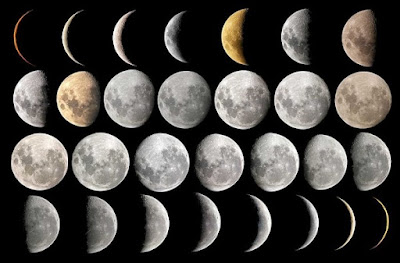by Spatika
 |
| People protest against the Citizenship Amendment Bill—which allows Hindus from Afghanistan, Bangladesh, and Pakistan to get citizenship and exclude Muslims from the same countries—in New Delhi on December 7, 2019. Javed Sultan/Anadolu Agency/Getty Images via Vox, December 16, 2019 |
Are America’s Blacks and India’s Muslims politically comparable? This question has acquired a new salience with the rise of the Black Lives Matter (BLM) movement, underway for weeks in the US, covering several hundred cities. Comparisons have been drawn with the anti-CAA protests in India, lasting three months after mid-December, rebelling against the attempted demotion of India’s Muslims to secondary citizenship. The mainstream Black argument that Blacks have been treated as inferior Americans, with Whites as the putative owners of the nation, is not altogether distinct. —The Indian Express, July 6, 2020
After a gap of 5 months, anti-Citizenship Amendment Act protests were once again back on the streets of Dibrugarh with hundreds of activists of the All Assam Students’ Union (Aasu) taking out a motorcycle rally. —The Times of India, August 4, 2020
I have loved Julius Caesar in stories
from my English friends.
I have despised Julius Caesar in words,
striking upon ages.
I live today in burning home astray, my mother
carries small paper notes in tattered folded hands,
saree sifts light through, the only windows left.
the men in uniform are
almost here, asking for signed papers.
I have none. I wish
they did not have pilots fly overhead in our screams, I wish
the skies did not rain upon our chalk graffiti, because
paint was for rich. I wish
our written word wasn’t flung behind bars
nobody to see, I wish
this had never begun.
Caesar lived through citizen’s strangled breaths.
but today I can hear him say,
“My countrymen never cried,
for my death. Pilgrims, ragged urchins,
rum-cupped lips did not bawl from inns,
ivory clad nobles’ eyelids batted away at dry air,
but even in those sleeping beneath crumbling columns,
clothes carried not a
single tear. there was
no force, no sheer strength of circus led gladiator,
no power of cavalier battalion, that brought
forth water of the bodies that my countrymen wore.
until
someone spoke
Antony, my noble aide, Antony
the moonlight to remember when my rays
no longer served people their warmth
Molten silver, seeping shades of wrong
and glory mingled in lava beds,
thorn showers, Antony’s words,
bitter water came streaming forth,
chiseled edges, Antony’s words,
cracks to a country’s soft minds,
breaking
stealthily through brittle floodgate woes.”
And thousands of years later, come such
a time of dark pits laden with the bodies of
my robed brethren.
a time of words printed in white against white pages
the children born with sight never see.
a time of petty gains made from my father’s caps
pieces of marble tablet remain, which is mosque, which is tomb?
a time when nobody can say.
today is here because yesterday was deaf to the pleas
of a thousand years.
are Antonys only built for dictators?
today is here, because the day I had a home, those on
the other side would walk confidently past it.
for when I still found chalk to write,
the only hands that rose was to cover people's eyes.
and now
masks are here to silence us.
a viral emergency is the cloak everyone wears around me,
I was born here and I am to leave,
can tears of rage be washed with bottles of hand sanitizer?
I didn’t need arms to fight,
I needed you, I needed her, I needed many.
Spatika is a fourth year student at the Indian Institute of Science Education and Research, Mohali, pursuing an Integrated Master's in biology. She is an INSPIRE Fellowship recipient, interested in neurobiology and writing. She is also a contributor at Feminism in India, and Delhi Poetry Slam, and a senior editor of her institute magazine.





